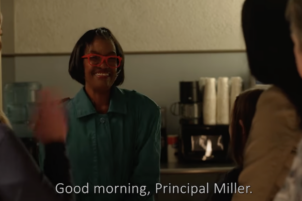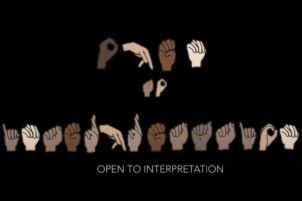Los Angeles, California, Feb. 22 – When Bonnie Plunket (Allison Janney) discovers she has ADD, she wishes she could “get a do-over” for “stuff I’ve messed up in my life.”
“How did no one notice this?” she asks her friends at her regular AA meeting during this week’s episode of Mom. Bonnie has had a history of addiction and other issues throughout her life. “If one foster parent, teacher or anybody had said, ‘Hey, this kid isn’t dumb. She just needs a little help.’ Everything could have been different. I’ve spent my entire freaking life struggling and now I find out it didn’t have to be that way. Who knows what I could have done?”
Attention Deficit Hyperactivity Disorder (ADHD) is a brain disorder that is characterized by an individual’s consistent inattention, hyperactivity and impulsivity. While everyone experiences these symptoms at one point or another, what classifies these behaviors under ADHD is when it begins to affect normal day-to-day functioning and/or development. ADHD is typically diagnosed in children. According to the Centers for Disease Control and Prevention (CDC), more than 6.4 million children have been diagnosed with ADHD in the United States – 11 percent of children ages four to 17. ADHD Predominantly Inattentive Type, also known as ADD, is a type of ADHD that does not involve hyperactivity. People with ADD may have trouble finishing tasks or following directions and might be easily distracted. But the symptoms are generally less noticeable for ADD than ADHD, and as a result many people with ADD are unfortunately overlooked.
ADHD and ADD are not learning disabilities. However, ADHD and ADD can interfere with learning. According to understood.org, experts estimate that one-third to one-half of individuals with a learning disability also have ADHD or ADD.
Frequently “invisible disabilities” such as ADHD and ADD are not diagnosed and students do not get the supports they need to achieve, especially among lower income and minority school districts. Not enough educators recognize a difference between when a child CAN’T follow instructions due to an executive function disorders or other cognitive issue, as opposed to WON’T follow instructions due to defiance.
Frustrated, students can act out and become suspended. Studies show that when students miss too many days, either for being truant or just being absent, they get so far behind in class that it can lead to them dropping out of school. As documented by the Center for American Progress, these issues are “an early warning sign for educational failure… [and] one mechanism that propels the school-to-prison pipeline.” Today there are more than 750,000 people with disabilities behind bars in America. Many of them do not have high school diplomas, are functionally illiterate and are people of color.
Overall, only 65 percent of students with disabilities graduate high school compared to 84 percent of students without disabilities.
Bonnie learns she has ADD after failing her GED.
“I couldn’t focus,” she tells her friends after discovering she failed, something she says she has done a million times. “I didn’t even finish. It didn’t help that the room was like 1000 degrees and there were sirens and dogs and a mouth breather who sounded like Darth Vader.”
Her doctor informs her she is able to retake the GED and ask for accommodations – including extra time or to take the test in a room alone without distractions.
“It kinda explains my whole life,” she says about her newly diagnosed ADD, “my trouble at school, jobs, relationships.”
While more than 70 percent of working-age individuals with disabilities want to work, just 37 percent are employed. ABC’s Shark Tank’s Barbara Corcoran has a daughter with ADD. As an extremely successful businesswoman with dyslexia, she understands the skills that employees with disabilities such as ADD bring to the table.
“I love these ADD-types and half of them are real geniuses, if only you could find a good slot to put them in,” she said on a 2017 episode.
Story lines such as this one in Mom are making a difference in how audiences perceive disability. The more people see successful individuals with disabilities in the media, the less likely people will have a negative attitude toward disabilities. And the success of television shows that embrace disability in their diversity conversations prove it is good for their bottom line as well.
“Hollywood has been really, really slow to recognize the diversity of this country,” said Jonathan Murray, executive producer of Born This Way. “I think it is catching up fast now. And I think it’s realizing that diversity is good business. I don’t think it’s necessarily because it is altruistic. I think they are recognizing that TV shows will do better if they reflect what the country is.”
Mom airs on Thursday evenings at 8:00 p.m. on CBS. It has been reported that Bonnie’s relationship with her ADD will be a multi-episode storyline.








